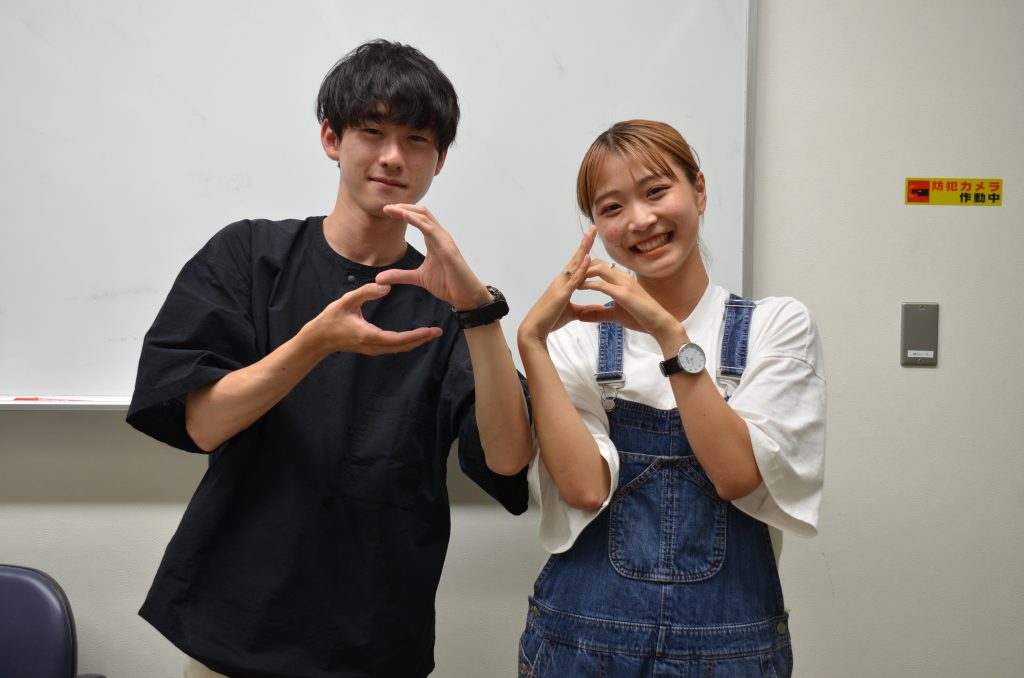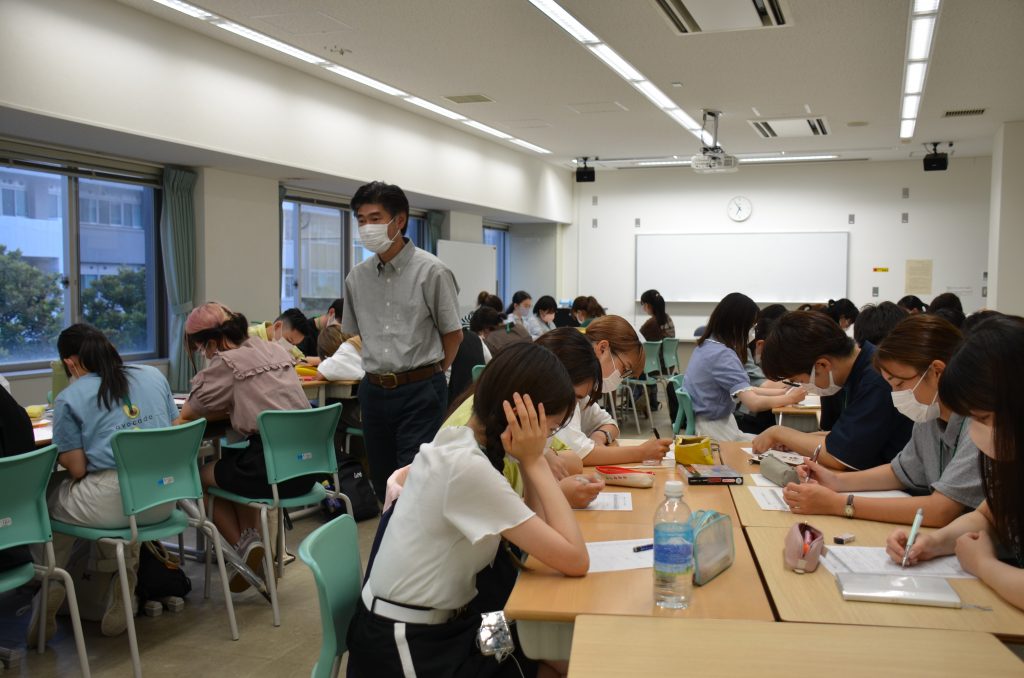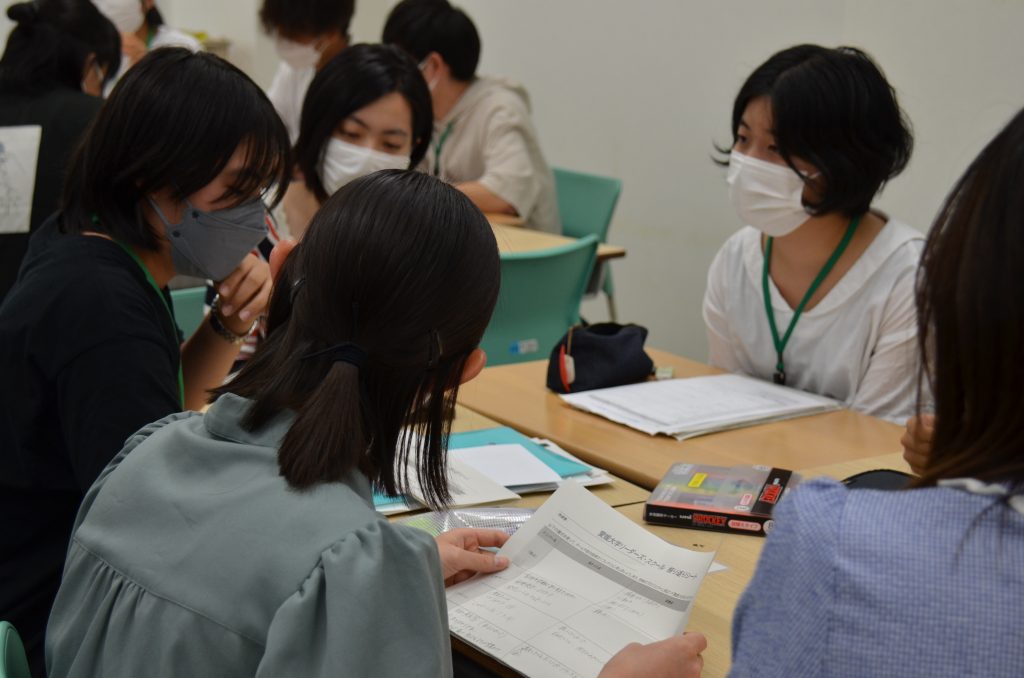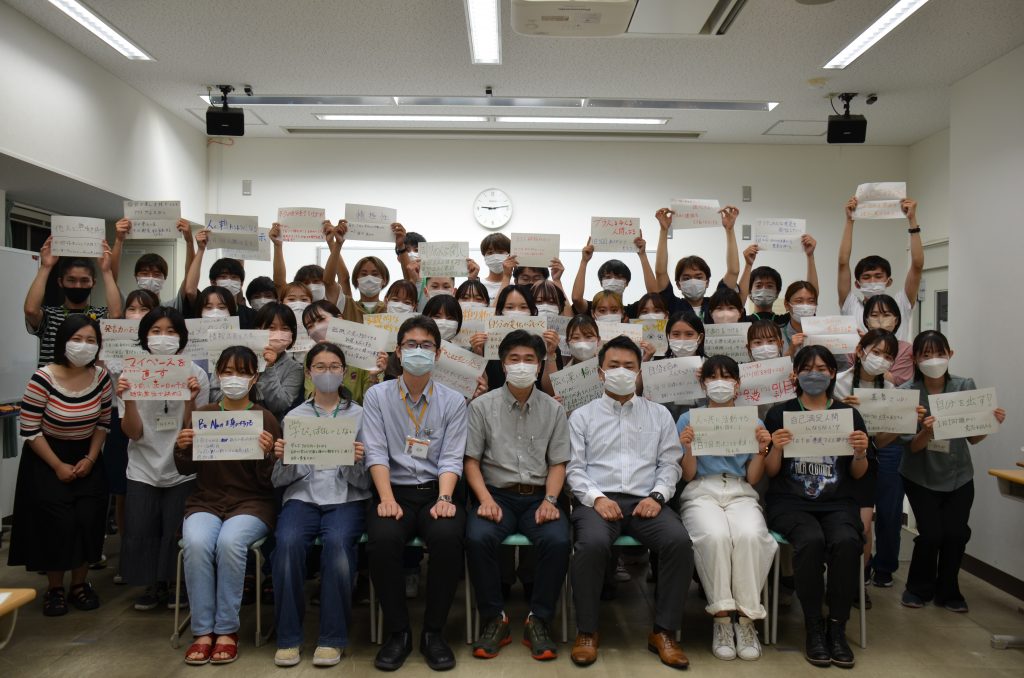This class is offered as a developmental course in the common education curriculum for all first-year undergraduate students and above. The purpose of this course is to create opportunities for students to learn about leadership, which is becoming increasingly important in today’s society, and to acquire the necessary skills through practical learning such as group work after learning the theory.
Lesson Content
This time, we covered the 14th class, the last plenary lecture out of a total of 15 classes.
The first step was a group discussion divided into six groups. The participants summarized their thoughts on the prepared reflection sheets under the theme of “sharing what each group member has discovered through their activities so far that were good and that can be improved upon. In particular, the theme of “points that can be improved” gave us a sense of the atmosphere unique to this lecture, which aims to promote human growth, as Dr. Murata said, “By sharing your findings here, you may have a positive impact on the other person’s future way of life.
After the participants had finished compiling their thoughts, the time allotted for discussion seemed to fly by as each group engaged in lively discussions. The students listened intently to their group members’ comments on their “good points” and “areas for improvement,” sometimes laughing, sometimes nodding their heads deeply. Students who had attended the previous year’s course also participated in the lecture as staff members, watching over the enthusiastic efforts of the younger students and helping to facilitate smooth discussions.
In the second half of the class, the students had time to think about their own “future goals” and “what they need to do to achieve their goals” based on what they have learned and experienced so far, and present them to their group members. What do I need to do in the future to grow as a better person? It was impressive to see the students present in lively voices the goals they had set, taking into account the “points that can be improved” that they had learned in the group discussion earlier.
Through this lecture, I was able to feel that the Ehime University School not only promotes my own personal growth, but also teaches me the importance of human connections.
Comments from faculty
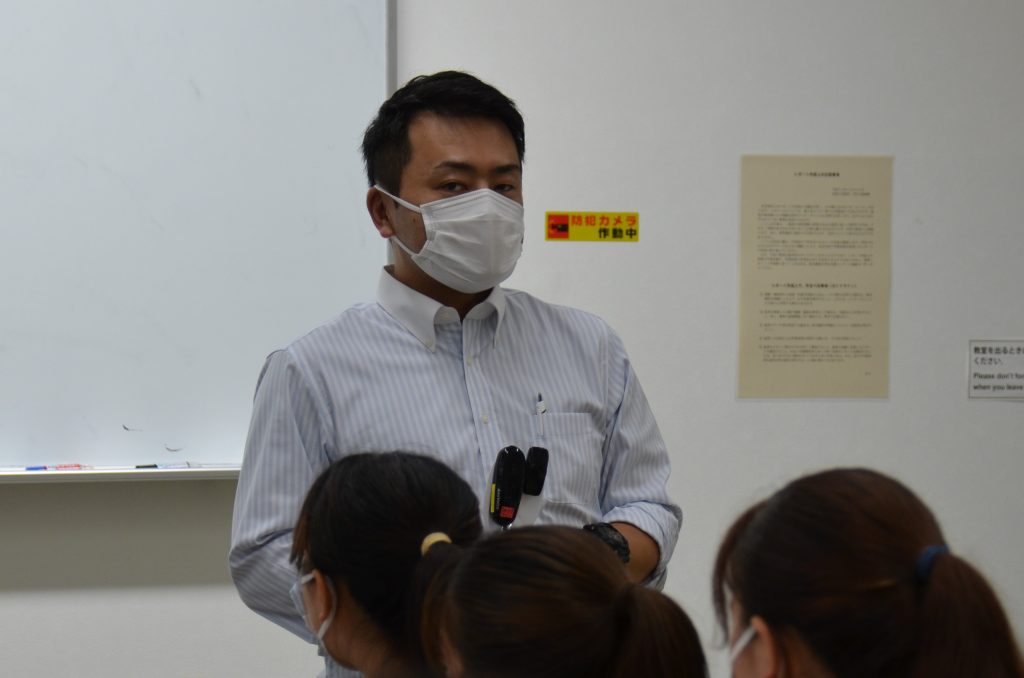
When you hear the words “leader” and “leadership,” do you think, “I have nothing to do with that…”? Or do you think to yourself, “I have had experience in leadership many times before, but what does it mean to “learn” leadership? But what does it mean to “learn” leadership? Do you think “I have many experiences of leadership, but what does it mean to “learn” it? Ehime University School (ELS), a common education development course, is a program where students can learn about leadership knowledge, skills, and mindset through both classroom lectures and practical training.
In addition to learning theoretical knowledge about leadership that has been studied for decades, students will have opportunities to put their classroom knowledge into action through group work and team activities in various situations in class, as well as through overnight training programs held during the course period. After these activities, students have time to reflect on their own challenges together, and can sort out what they have done and what they have not done, what issues they and their teams are facing, and what goals they can set for themselves and what challenges they can take on next. And then learn from it all again in a classroom setting. Practice what you have learned… This cycle of learning is the basic design of ELS.
Leadership and related abilities are one of the skills that are essential in the real world, as is evident in the definition of basic skills for working adults, bachelor’s degree, and global human resources. The 7th specific competency, “the ability to collaborate with diverse people to achieve goals,” is based on the elements of cooperation, teamwork, and leadership.
Nevertheless, it is not useful to be able to explain the definition of leadership as knowledge, saying, “This is what it is. Once you have acquired systematic knowledge, you must try to put it into action. This is why ELS provides opportunities to practice leadership skills.
After learning the basics of leadership in ELS, which is usually offered in the first semester, it is recommended that students continue with a more advanced course, “Facilitation and Leadership” (also known as EFL; responsible teacher is Dr. Masateru Nakamichi), in the second semester. Compared to ELS, which focuses on collaborative activities and group presentations among students, EFL involves multiple project activities in cooperation with various stakeholders inside and outside the university, including Ehime Prefecture, Matsuyama City PTA Association, Job Café Ai Work, Ehime University High School, and Ehime University partner university (National Kaohsiung University of Science and Technology, Taiwan). The project activities will be undertaken in cooperation with various stakeholders inside and outside the university, as well as in Japan and overseas.
Any student of the Ehime University can take ELS, no matter which department he or she belongs to or what grade he or she is in. Students can study side-by-side with members from different departments, faculties, and grades, and work together on projects. The expansion of human relationships that is created through these activities is one of the charms of the ELS program. If you have come all the way to Aichi University, why don’t you find new opportunities to challenge yourself at ELS? We are waiting for your challenge.
Comments from students
Kyogo Noguchi, 1st year student Faculty of Engineering
In this course, you can learn about leadership not only through passive learning, such as listening to lecturers, but also through active activities, such as standing on the side of a seminar presenter or being involved in the planning and management of a seminar. I was able to grow a lot in a short period of time. I was able to grow a lot in a short period of time. This is a fascinating course that gives me stimulation that I cannot experience in other courses and the pleasure of being with others who are aiming for the same goals.
Ako Kojima, Faculty of Collaborative Regional Innovation student, Faculty of Collaborative Regional Innovation
At ELS, students can learn and acquire “leadership” through lectures and by actually conducting seminars themselves. In the short time of 3 months, I was able to discover what I lacked and spend a fulfilling time with comrades and teachers who could criticize each other and help us improve each other.
In addition to learning about leadership, ELS is a great course that allows you to confront yourself and grow as a person.
